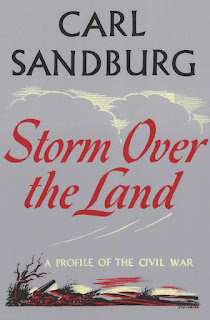LINCOLN'S GENERALS (Gettysburg Civil War Institute Collection) edited by Gabor S. Boritt

Published by Oxford University Press in 1995. Lincoln's Generals is a collection of 5 essays written by scholars of various aspects of the Civil War. In this case, they focused on how Lincoln worked with his various generals, mostly the generals of the Army of the Potomac. They are organized in roughly chronological order. The first essay was very well-written. It was by Stephen W. Sears and concerned Lincoln and McClellan. The weakest, for me, was the second essay, ostensibly about General Hooker. It's focus was really the macho culture of the time that required men to prove themselves manly by exposing themselves to fire. It wasn't a bad essay, but it really was not about the relationship between Lincoln and Hooker. The other three essays were about Meade, Sherman, and Grant. I got an appreciation for the difficulties of Lincoln's political position, especially as the election of 1864 approached. Viewing things from 161 years later, it seems like it was all pre-orda...


















